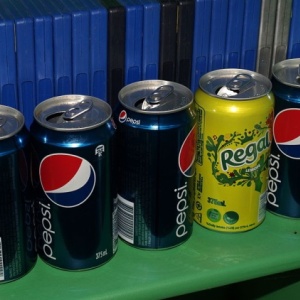
This study compared the impact that a 20 per cent sales tax and a 20 cents per litre excise tax on beverages such as carbonated non-diet soft drinks, cordials and fruit drinks would have on moderate and high consumers. It found that although high consumers of sugar-sweetened beverages have the least elastic demand, they drink so much that they are up against household budget limits, and therefore adding tax would bring down their consumption.
The study also found that an excise tax was more effective than a sales tax of similar levels at reducing consumption rates, especially for heavy drinkers. It also found that adding the tax tax to all sugar-sweetened drinks would mean only a small financial burden for those who drank them at low or medium rates. Overall the paper concludes that the introduction of the tax would be cost effective and deliver significant health benefits.
Note that an excise tax is a tax levied upon the producer while a sales tax is levied on the consumer.
Abstract
This study compares the impact of a sugar-sweetened beverages (SSBs) tax between moderate and high consumers in Australia. The key methodological contribution is that price response heterogeneity is identified while controlling for censoring of consumption at zero and endogeneity of expenditure by using a finite mixture instrumental variable Tobit model. The SSB price elasticity estimates show a decreasing trend across increasing consumption quantiles, from −2.3 at the median to −0.2 at the 95th quantile. Although high consumers of SSBs have a less elastic demand for SSBs, their very high consumption levels imply that a tax would achieve higher reduction in consumption and higher health gains. Our results also suggest that an SSB tax would represent a small fiscal burden for consumers whatever their pre-policy level of consumption, and that an excise tax should be preferred to an ad valorem tax. Copyright © 2015 John Wiley & Sons, Ltd.
Citation
Etilé, F., Sharma, A., Special Issue Paper, Do High Consumers of Sugar-Sweetened Beverages Respond Differently to Price Changes? A Finite Mixture IV-Tobit ApproachHeath economics
Read the full paper here.







Post a new comment »